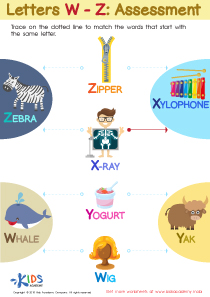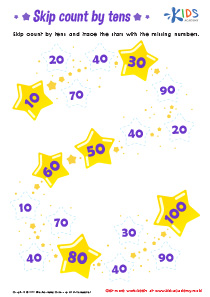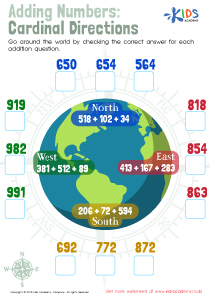Social Studies Lessons | Cultures Around the World, Kindergarten
5 results
Our Cultures Around the World Lessons for Kindergarten children offer a fun and interactive way to learn about different cultures worldwide. Our comprehensive and engaging curriculum includes interactive worksheets, educational videos, and assessment quizzes. Children will embark on an exciting journey to discover the customs, traditions, and lifestyles of people from various countries. Our lessons help to foster an appreciation for diversity and cultural awareness. Join us in this extraordinary adventure and let your little ones uncover the beauty of different cultures around the world. Enroll now and let the learning begin!
Cultures Around the World Lessons: How They Benefit Kindergarten Children in their Studies
In today's world, it is more important than ever for children to learn about the diverse cultures around them. This is where Cultures Around the World Lessons for Kindergarten comes into the picture. The curriculum involves interactive worksheets, educational videos, and assessment quizzes designed to engage children in learning about a variety of cultures.
One of the most significant benefits of the Cultures Around the World Lessons is that it enhances children's cultural awareness and sensitivity. By learning about various traditions, customs, and beliefs of different cultures worldwide, kindergarten children develop an appreciation for individual differences and celebrate diversity.
Moreover, it opens up doors to new experiences, ideas and perspectives, and broadens their horizons. The lessons provide an opportunity for children to engage in cross-cultural dialogues and learn about different communication styles, expressions, greetings, and traditions.
Another crucial benefit is that these lessons promote global citizenship and foster a sense of belonging to the larger global community. It helps children learn about their roles and responsibilities as global citizens, promotes empathy and respect for other cultures, and encourages them to be more active in making a positive impact on the world.
Furthermore, the lessons promote cognitive development, as they challenge children to think critically and creatively. They encourage children to ask questions, analyse information, and make connections between different cultures, traditions, and beliefs. It also strengthens children's curiosity, imagination, and ability to solve problems independently and collaboratively.
In addition to stimulating cognitive development, the Cultures Around the World Lessons also enhance children's linguistic skills. By learning about different cultures with their unique languages, these lessons provide an opportunity for children to learn new vocabulary, grammar structures, and pronunciation from a young age.
Moreover, as children learn from videos and interactive worksheets, they develop listening, speaking, reading, and writing skills in an enjoyable and engaging way. This will not only benefit children in their overall academic performance but also prepare them for successful language acquisition in their future.
Finally, the lessons contribute to the development of essential social and emotional skills. As children learn about different cultures, it helps to strengthen their sense of self-awareness and develop the sense of identity.
It also promotes empathy, tolerance, and respect for others, ultimately creating a more inclusive and harmonious classroom environment.














